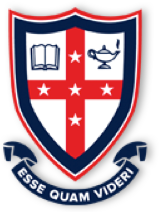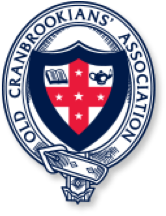Edward “Ned” Sevil (OC 1998), Photographer
Deep blue night skies pricked by tiny white stars; fish cooking on a glowing red fire; Aboriginal boys pulling faces in the instant of a camera flash; squat boab trees; feet swathed in woolly mustard socks and loosened brown hiking boots on the dashboard.1 These are just a handful of the photographs that old Cranbrookian, Ned Sevil, took during his six-year stay in the East Kimberley region of Western Australia. Here, Ned supported the Warmun (an Aboriginal community of 400-600 people) by joining various cultural projects initiated by the Gija Elders.2
A cystic fibrosis sufferer, Ned died in 2010 at just thirty years of age, but his partner, Anna Crane, and mother, Christine Mason, have continued to support the Gija Elders by establishing the Ground Up Community Support Network in his honour.3 Ground Up is an independent charity that aims to build culturally strong Aboriginal communities through facilitating the transmission of language and culture to younger generations.4
Edward “Ned” Sevil (1980–2010) attended Cranbrook from 1993 to 1998.5 A creative student, he went on to receive honours in photography at Sydney College of the Arts and worked as an artist, often collaborating with his father and brother.6 After exploring Europe, India, Nepal and Bali, Ned and his partner Anna journeyed to the other side of Australia to work with the Warmun community.7
Ned began as an assistant at the Warmun Art Centre, home of the leading artists Rover Thomas, Queenie McKenzie, George Mung Mung and Paddy Jaminji.8 Following this, he helped to facilitate a project initiated by the Gija elders called “Gelengu du Glenguiwurru” (Old and New, Young and Old), in which young Gija were taken to the bush to make films about their culture, language and bush medicine.9 This was no mean feat for Ned whose cystic fibrosis would have required constant treatment and therapy.10
Today, Ned’s efforts have expanded into a diverse intergenerational cultural program that includes weekly language and literacy lessons held by Gija grandparents and great-grandparents (the only members of the community who remain fluent in this critically endangered language); regular bush trips by which new generations are taught art, song, dance, language and food skills; and regular film and radio programs that Gija youth produce in their own language.11
Aboriginal knowledge is coded in art. Indeed, according to artist Rover Thomas, rock painting was one of the important ways in which his ancestors passed down life skills: “we knew how to do things by copying the things they made long ago in the Dreaming”.12 This artistic and linguistic program therefore helps the Warmun community to not only shape intergenerational bonds, but also transmit knowledge and identity in a place that has one of the highest suicide rates in the world.13
By laying the initial threads for Ground Up, Ned provided a model for current students who seek to follow the Cranbrook values of global responsibility, service to others, and creativity and exploration. Despite his own health struggles, this Cranbrookian worked hard to become the active steward of a struggling community’s heritage.
- 1. Ned Sevil, "Photostream", Yahoo, https://www.flickr.com/photos/nedsevil.
- 2. "Ground Up Community Support Network", Ground Up Community Support Network Ltd, http://groundupcommunity.org/.
- 3. Ibid.
- 4. Ibid.
- 5. "Valete: Edward Sevil", The Cranbrookian 79 (1998): 213.
- 6. "Visual Arts: Ned Sevil, Year 12", The Cranbrookian 89 (1998); "Evil Brothers", Performance Space, http://www.theregoestheneighbourhood.org/ned.htm.
- 7. "Edward Daniel Robert Mason (Ned) Sevil (1980-2010) at Cranbrook 1993-1998", Old Cranbrookian 50, No. 1 (2012): 37.
- 8. Anna Crane, Frances Kofod, and Alana Hunt, "Warmun Arts. You Got a Story?", Artlink 36, No. 2 (2016).
- 9. "Edward Daniel Robert Mason (Ned) Sevil (1980-2010) at Cranbrook 1993-1998", op. cit., 37-38.
- 10. "Living with Cystic Fibrosis," Cystic Fibrosis Federation of Australia, http://www.cysticfibrosis.org.au/all/living/.
- 11. "Ground up Community Support Network", op. cit.
- 12. Crane, op. cit.
- 13. Jessica Rapana, "How a Bronte Psychologist Is Saving an Indigenous Language That Could Save a Generation and Its Culture", Wentworth Courier, 29 May 2015.

